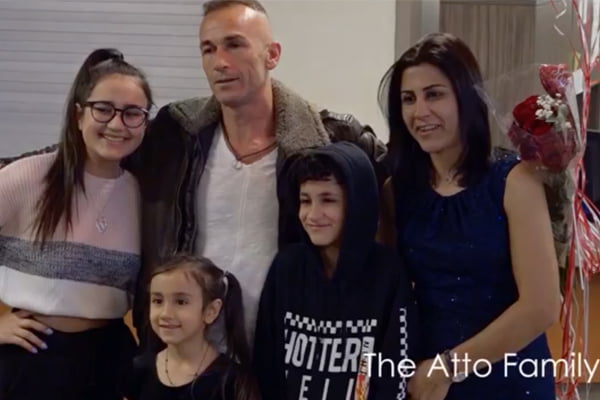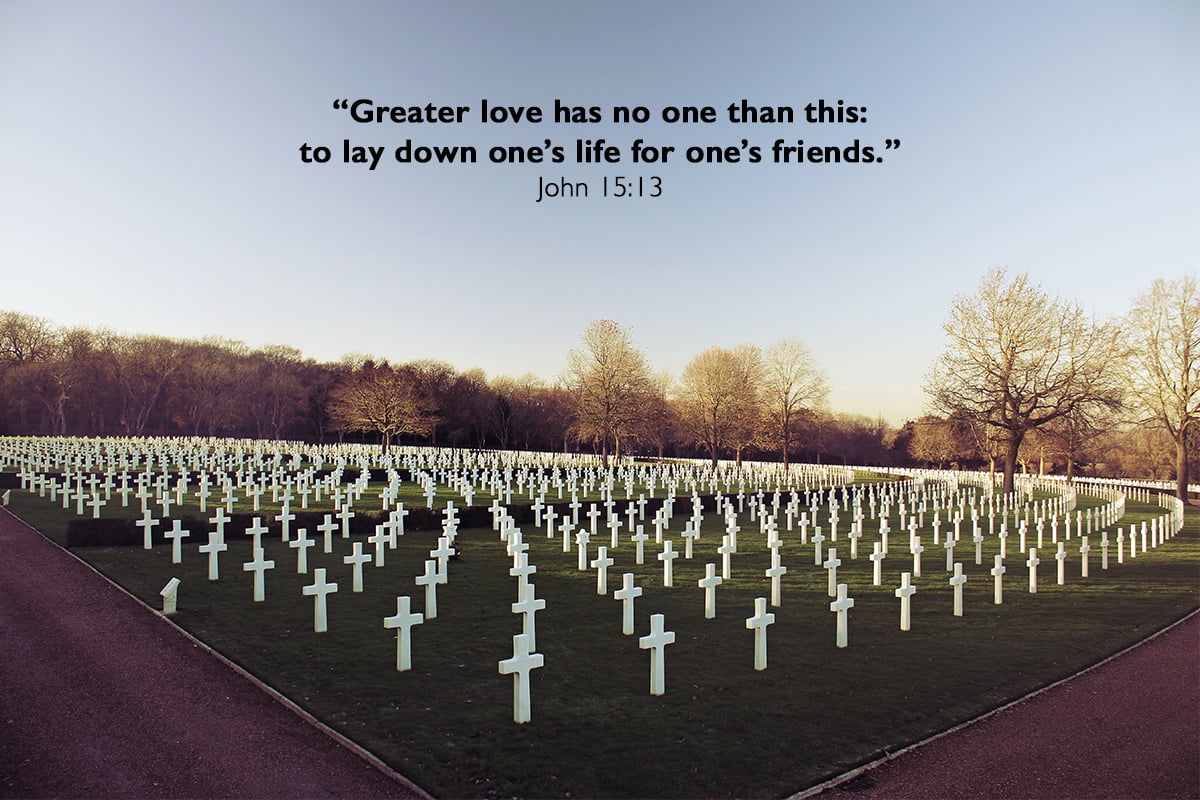 “Teacher, which is the greatest commandment in the Law?” Jesus replied: “‘Love the Lord your God with all your heart and with all your soul and with all your mind.’ This is the first and greatest commandment. And the second is like it: ‘Love your neighbor as yourself.’ All the Law and the Prophets hang on these two commandments.” (Matthew 22:36-40, NIV)
“Teacher, which is the greatest commandment in the Law?” Jesus replied: “‘Love the Lord your God with all your heart and with all your soul and with all your mind.’ This is the first and greatest commandment. And the second is like it: ‘Love your neighbor as yourself.’ All the Law and the Prophets hang on these two commandments.” (Matthew 22:36-40, NIV)
I’m by nature (and perhaps by birth order) a peacemaker. I’m always looking for common ground, for a way to bring divergent views together. I pride myself on being able to see things from another person’s point of view. And it’s almost always possible to find a way to work together. Where there’s a will…
Whether it’s a happy medium or a third way or even agreeing to disagree – I believe that there’s a way to resolve differences and avoid conflict. But on the issue of the church and homosexuality I find myself at a frustrating impasse.
After all of the ideas and opinions are on the table about what’s “natural” and what Scripture says and what it means, and once the personal stories of inclusion or exclusion have been shared, the fact remains that there are those who believe that God celebrates homosexuality (both the orientation and practice) and those who believe that homosexual practice is always sinful (though orientation itself is not).
Efforts to find middle ground or a happy medium between these positions are futile. This is an irreconcilable difference. And even though those opposing perspectives cannot both be “right”, the people who hold them should not be coerced or bullied into believing otherwise.
At the end of the day decisions will be made and policies formulated that are rooted in one view or the other. Lesbian, gay, bisexual, transgendered, and queer (LGBTQ) believers will either be fully welcomed and affirmed in all areas of the church’s faith and practice or they will (perhaps) be welcome to worship but excluded from, for instance, positions of formal leadership within the local church or the denomination.
That said I still believe (and passionately hope!) that people who hold these divergent views CAN work together and even love one another. I’m not calling for compromise but for sensitivity and humility.
All of us, I trust, are honestly striving to come to “correct” conclusions. After all, whoever sets out to be wrong?!
And this is where a recent TED talk comes in. The TED talk features Sally Kohn and her topic is emotional correctness. We talk a lot about political correctness and in Christian circles, of course, we’re concerned with theological correctness. Sally calls us to another – or more accurately, an additional – perspective, which she calls emotional correctness. And by this she means the way we treat people, whether we agree with them or not.
She says, for example, that we can be politically correct but emotionally incorrect, OR we can be politically incorrect, but emotionally correct. By extension I believe that we could add theological correctness to the mix. That is, we can be theologically “correct” but emotionally incorrect or theologically incorrect but emotionally correct. It has to do with how we treat one another in spite of our political and/or theological differences. Sally Kohn says: “Emotional correctness is the tone, the feeling, how we say what we say, the respect and compassion we show one another. And what I’ve realized is that political persuasion doesn’t begin with ideas or facts or data. Political persuasion begins with being emotionally correct.”
Theological correctness is based on our understanding of God and of Scripture. Insofar as it’s an “interpretation”, I believe that we must always acknowledge the possibility of error, no matter what we believe. We see through a glass darkly.
On the issue of homosexuality, theologians and other people of profound faith, have come to different conclusions about what the bible says and means. Many argue that just as the bible was used historically to justify slavery or the oppression of women, overly simplistic interpretations of a few bible passages are now used to justify the church’s failure to fully embrace believers of the LGBTQ community.
I don’t agree with this view, but I understand the desire to reconcile the tension between our image of a God of love and grace with a God who would require someone to deny their sexual impulses, forever.
The assumption of many is that over time these interpretations will be rubbed out of the collective memory so that a hundred years from now Christians will be dumbfounded that anyone could have been so backward as to take those passages as serious challenges to the full acceptance and inclusion of LGBTQ Christians.
And I think that perhaps they’re right. Maybe 100 years hence it will be a non-issue. Who would have thought even 25 years ago that attitudes and laws would have changed as much as they have? But I would argue that that is NOT the standard by which we know God’s will.
For me this idea of emotional correctness is a way of bridging the enormous gap between those who genuinely and with all sincerity hold completely divergent views on a topic. Emotional correctness does not solve the problem of a church’s or denomination’s policy on the exclusion or inclusion of non-heterosexual believers in its ministry, but I don’t believe that we can claim to be followers of Christ without it, no matter what we believe on issues like homosexuality.
To infuse culture is to be the incarnational presence of Christ in the world. Christ modelled both theological and emotional correctness. He loved people where they were and extended grace and mercy, irregardless of the political climate of the day. He was in the world, but not of it. As we strive to emulate him let’s start with love and humility in all of our relationships, and especially with those with whom we disagree.
There is no happy medium when it comes to our beliefs about homosexuality, but we can – and MUST – find ways to authentically represent Christ in the trenches of everyday life.
[You can watch Sally Kohn’s TED talk at http://new.ted.com/talks/sally_kohn_let_s_try_emotional_correctness. Be advised that some of the content may be offensive.]




